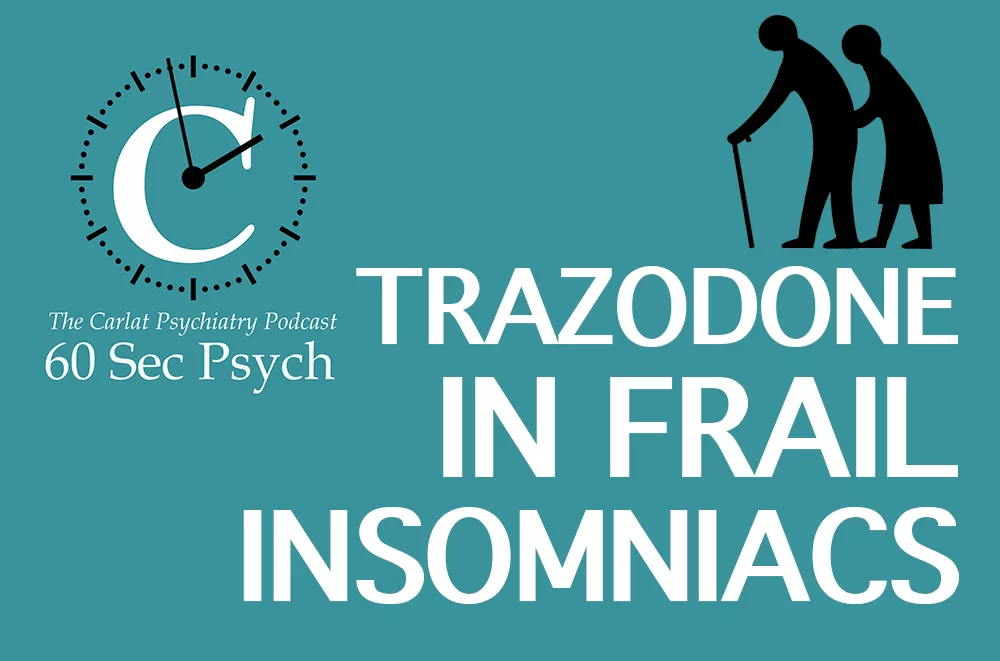It’s risky business – giving sleep meds to the elderly and the medically ill – and today we have some reassuring data. [Link]
Published On: 9/5/2020
Duration: 2 minutes, 22 seconds
Transcript:
It’s risky business – giving sleep meds to the elderly and the medically ill – and today we have some reassuring data.
This first-of-its-kind study was a small, randomized, double-blind, placebo-controlled study of trazodone 50mg in older adults with small vessel cerebral vascular disease and insomnia. They looked at how treatment with trazodone would affect the Montreal Cognitive Assessment scale (or MoCA) – a popular test for dementia that Donald Trump famously passed on his recent medical exam. These patients had cognitive impairment but not dementia, with a mean MOCA of 17.
Trazodone was well tolerated with mild nausea and headache, but also dizziness – which could be a concern because of the risks of falls and orthostasis with trazodone although there were no changes in blood pressure on it.
The patients who took trazodone slept deeper with fewer awakenings and saw improvements in their daytime functioning, anxiety, depression…. And they also had significantly better concentration and recall, although their total MOCA score was not significantly improved.
Good cognition depends on good sleep, and it’s likely that the improvements in sleep quality with trazodone are what lead to better cognition here. The improvements were slight, but they contrast with a study in healthy patients with insomnia where trazodone caused slower reaction times in the morning. This study at least reassures us that trazodone can be safe in patients with ischemic disease and insomnia, and it may be beneficial as well.
Got feedback? Take the feedback survey.


_-The-Breakthrough-Antipsychotic-That-Could-Change-Everything.webp?t=1729528747)



